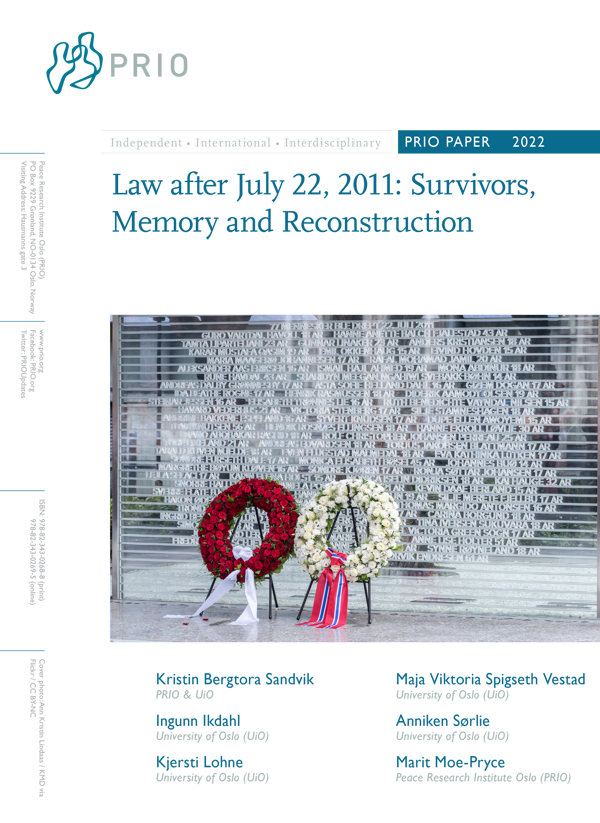While the criminal law and security governance aspects of the July 22 terror attack in Norway have been extensively analyzed in the academic literature, much less attention has been given to processes involving civil law, legal mobilization and legal-bureaucratic processes.
The slow workings of the law mean that the aftermath of July 22 is still unfolding in different legal processes. This PRIO paper carves out a socio-legal research agenda intended to bridge the aforementioned knowledge gap. In so doing, it identifies various aspects of how the law deals with survivors, their families and the bereaved. It also addresses the legal debates over memorials and the reconstruction and securitization of the Norwegian Government Quarter. We argue that in choosing between extraordinary and ordinary legal mechanisms and instruments to deal with the terror attack, the state and the legal system have opted for the latter.
This emphasis on “ordinary law” must be investigated. We are interested in how law distributes resources, rights and identities and sets limits on government interventions – and how individual actors and organizations mobilize the law to shape the political, popular and legal narratives around July 22.










